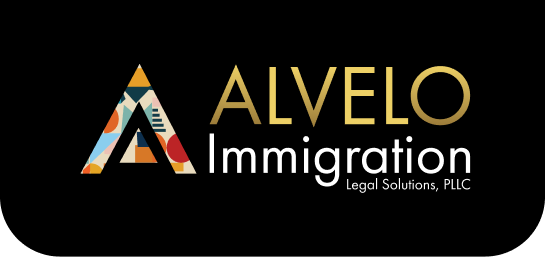The Citizenship Tests: Becoming a U.S. Citizen
Preparing for the English & Civics Exams
Taking the citizenship tests might sound intimidating, but with the right preparation, you’ll walk into your interview with confidence. The good news? Over 90% of applicants pass on their first try. Alvelo Immigration Legal Solutions, PLLC, will break down what these tests involve and how you can set yourself up for success.
What You Need to Know About the English Test
The English test isn’t designed to trip you up or test advanced language skills. Instead, it focuses on everyday English that helps you steer life in America. You’ll need to demonstrate three basic skills:
- Reading: You’ll be asked to read one sentence aloud from a set of three options. The sentences use simple, common vocabulary related to civic life.
- Writing: The officer will dictate a sentence that you’ll need to write down correctly. Again, these sentences use straightforward language about American life and government.
- Speaking: Throughout your interview, the officer will assess your ability to understand and respond to questions in English. They’re trained to speak clearly and will repeat themselves if necessary.
What You Need to Know About the Civics Test
For the civics portion, you’ll be tested on your knowledge of U.S. history and government.
The USCIS officer will ask you up to 10 questions selected from a set of 100 possible questions that you can study in advance. To pass, you’ll need to answer at least six questions correctly. Unlike a written exam with multiple choice options, this is a verbal Q&A – the officer asks the question, and you respond from memory.
Accommodations for the Civics Test
Not everyone needs to meet the same requirements. The U.S. immigration naturalization process includes special accommodations based on age and time as a permanent resident:
- If you’re 50 or older and have held your green card for at least 20 years (the “50/20” rule), you can take the civics test in your native language with an interpreter.
- Similarly, if you’re 55 or older with at least 15 years as a permanent resident (the “55/15” rule), you also qualify to take the civics test in your native language.
- Applicants who are 65 or older and have been permanent residents for at least 20 years benefit from a simplified civics test – you’ll only need to study 20 questions instead of the full 100.
For individuals with medical conditions that make these tests challenging, a disability exemption may be available through Form N-648, which we will discuss further below.
Study Resources & Practice Tools
USCIS provides a wealth of free study materials that make preparation straightforward and accessible. Think of these resources as your personal study guide to citizenship:
- The Official USCIS Civics Test Study Booklet contains all 100 potential questions along with their answers. This should be your primary study tool, as these are the exact questions that could appear on your test.
- Want to see what the interview experience is actually like? USCIS provides a video that shows the interview process from start to finish. Watching this can help ease anxiety by showing exactly what to expect.
- For auditory learners, MP3 recordings of the civics questions and answers let you study while commuting, exercising, or doing household chores. The mobile apps also make it easy to squeeze in quick study sessions throughout your day.
- Many communities offer free or low-cost citizenship classes where you can practice with others in a classroom setting. These classes often provide the added benefit of meeting others going through the same process, creating a supportive community.
For effective studying, we recommend starting early – ideally 3-6 months before your anticipated interview date. Short, regular study sessions are more effective than cramming. Try reviewing 10 questions each day, gradually building your knowledge while reinforcing what you’ve already learned.
At Alvelo Immigration Legal Solutions, we have found that clients who utilize multiple study formats – including reading, listening, and practicing aloud – tend to retain information more effectively. Consider recording yourself answering questions to build confidence in speaking English.
Accommodations & Disability Form N-648
The U.S. immigration naturalization process is designed to be accessible to everyone, including those with medical conditions that might make the standard testing requirements difficult to meet.
If you have a physical, developmental, or mental health condition that makes it challenging to learn English or U.S. civics, you may qualify for an exemption through Form N-648, Medical Certification for Disability Exceptions.
This form must be completed by a licensed medical professional – either a medical doctor, doctor of osteopathy, or clinical psychologist – who can verify and explain how your medical condition prevents you from meeting the English and civics requirements. The medical professional needs to describe your condition in detail and make a clear connection between your diagnosis and your inability to learn or demonstrate knowledge of English or civics.
Mental Conditions that Affect Your Testing Ability
Some conditions that commonly qualify include Alzheimer’s disease, dementia, significant learning disabilities, traumatic brain injury, severe psychiatric disorders, and certain sensory impairments like significant hearing or vision loss.
The Importance of Form N-648
When submitting Form N-648, timing matters. The form should be filed along with your N-400 application or brought to your interview. It’s only valid for 6 months from the date your doctor signs it, so don’t have it completed too far in advance.
Even if you don’t qualify for a complete exemption, USCIS can provide various accommodations to help you succeed. These might include extended testing time, permission to bring a reader or interpreter, sign language interpretation, or materials in Braille or large print.
To request these accommodations, simply include a letter with your Form N-400 that explains your needs, or call the USCIS Contact Center prior to your interview. The goal is to ensure everyone has a fair opportunity to become a U.S. citizen, regardless of physical or mental challenges.
Contact Alvelo Immigration Legal Solutions, PLLC, to Know What Kind of Forms You Need to Complete the Naturalization Process
At Alvelo Immigration Legal Solutions, we’ve guided many clients with disabilities through the U.S. immigration naturalization process, ensuring they receive the accommodations they need while maintaining their dignity throughout this important journey.
Many people successfully steer this process on their own. However, if your situation involves complications such as extended travel outside the U.S., past legal issues, or medical conditions that may affect your testing requirements, professional guidance can make all the difference. Even seemingly straightforward cases can benefit from experienced support to avoid unnecessary delays.
If you’re planning to start the naturalization process, you don’t have to do it alone. Our naturalization attorneys can help you. Contact us today to schedule a consultation.
 Payment through LawPay
Payment through LawPay 

